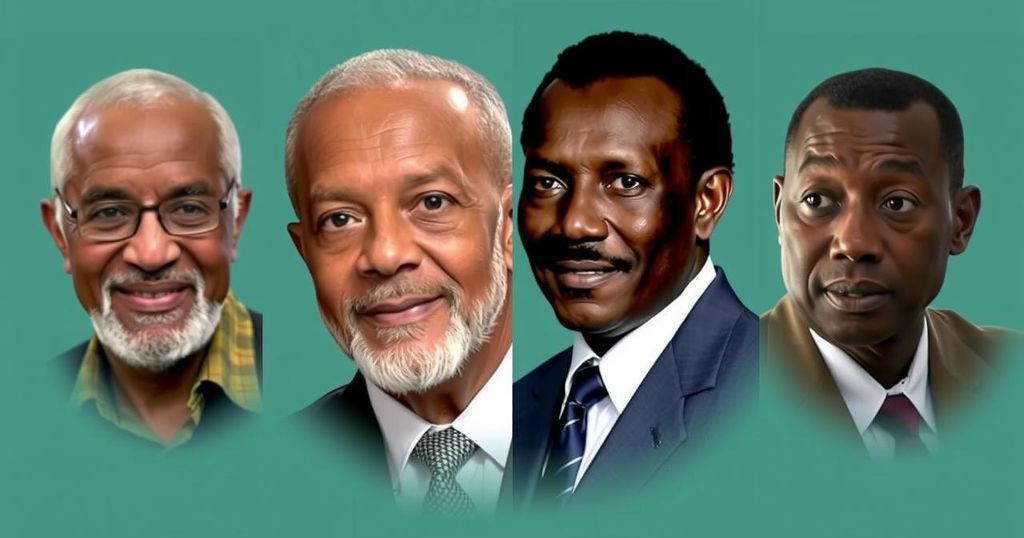The United States has officially designated the Rapid Support Forces (RSF) in Sudan as having committed genocide against civilians, announcing sanctions against their leader, Mohamed Hamdan Dagalo. Secretary of State Antony Blinken highlighted the RSF’s direct attacks and systematic killings based on ethnicity. The ongoing conflict has resulted in tens of thousands of deaths and extensive displacement, exacerbated by severe humanitarian crises and impeded access to aid organizations.
On Tuesday, the United States officially declared that the Rapid Support Forces (RSF) and affiliated militias in Sudan have perpetrated acts of genocide, leading to the imposition of sanctions against the group’s leader, Mohamed Hamdan Dagalo. United States Secretary of State Antony Blinken stated that the RSF has systematically targeted civilians, particularly ethnic men and boys, resulting in substantial loss of life. Moreover, Blinken condemned the group for employing sexual violence against women and girls based on their ethnicity, an act he described as part of the atrocities committed by the RSF during an ongoing brutal conflict in Sudan.
The ongoing conflict between Sudan’s military and the RSF has reportedly resulted in the deaths of tens of thousands and has displaced over 11 million people within the country in the past 18 months. Furthermore, it has led to extensive mortality from conflict-induced causes such as illness and starvation, as reported by the London School of Hygiene and Tropical Medicine. The international community has expressed grave concerns as aid organizations, including the World Health Organization (WHO), have faced significant challenges in accessing affected regions amid dire shortages of essential food and medical supplies, which are exacerbating the humanitarian crisis.
The US Treasury has not only targeted Dagalo with sanctions that restrict his travel to the United States and freeze any US-based assets he may possess, but it has also sanctioned seven companies affiliated with the RSF operating in the United Arab Emirates (UAE). The Sudanese government has accused the UAE of providing military support to the RSF, a claim that the UAE has denied. The United Nations has called on nations supplying weapons to both the RSF and the Sudanese army—both implicated in grave human rights violations—to halt their arms transfers, as these actions are enabling the ongoing violence.
In a parallel context, the United States has faced criticism for allegedly supporting significant human rights abuses in other regions, particularly in Gaza, where according to reports, military actions by Israel have resulted in substantial civilian casualties, raising serious international humanitarian concerns. This complex backdrop highlights the intricate relationship between military actions and humanitarian impacts, demanding urgent global attention and response.
The US government’s recent determination regarding the RSF highlights a critical juncture in international human rights advocacy, wherein the United States is responding to alleged genocide in Sudan. The RSF, a paramilitary group that has engaged in violent conflicts against civilians, has become synonymous with atrocities that include targeting specific ethnic groups for extermination. The unfolding humanitarian crisis, intensified by the ongoing war and associated sanctions, is compounded by non-accessibility of humanitarian aid to the affected populations, resulting in widespread famine and illness. This situation necessitates ongoing scrutiny and international intervention to address and rectify the systemic violence and neglect faced by the Sudanese people.
In conclusion, the United States has taken a significant stance against the RSF’s genocidal actions in Sudan, exemplified through targeted sanctions against its leader and affiliated organizations. As the humanitarian crisis persists, international bodies must advocate for the cessation of arms supplies to aggressors and facilitate the delivery of vital aid to the afflicted. The situation in Sudan requires sustained attention to prevent further atrocities and to uphold the fundamental rights and dignity of its citizens.
Original Source: www.aljazeera.com






